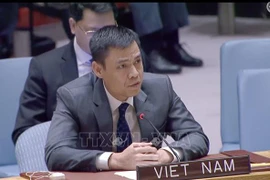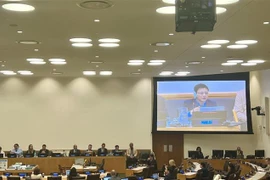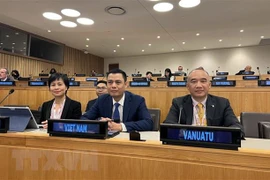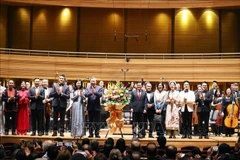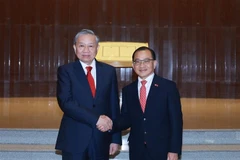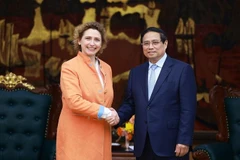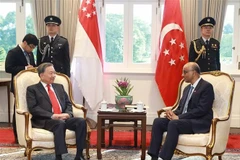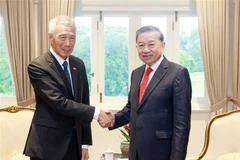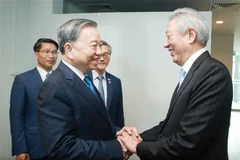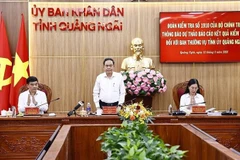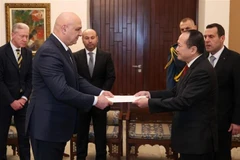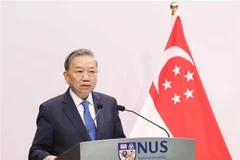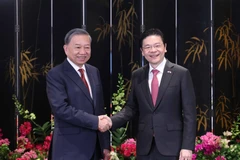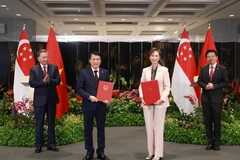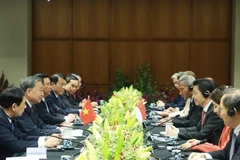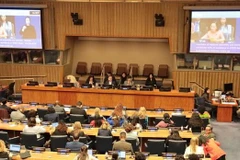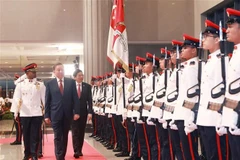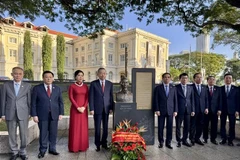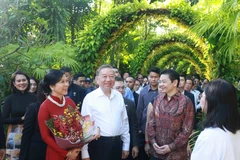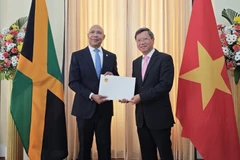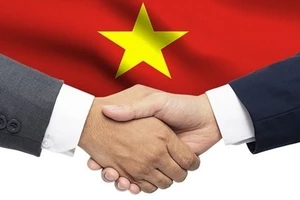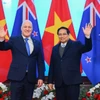 Ambassador Dang Hoang Giang (front, left) and other members of the Vietnamese delegation at the Intergovernmental Conference on Marine Biodiversity of Areas beyond National Jurisdiction in New York (Photo: VNA)
Ambassador Dang Hoang Giang (front, left) and other members of the Vietnamese delegation at the Intergovernmental Conference on Marine Biodiversity of Areas beyond National Jurisdiction in New York (Photo: VNA) The agreement under the 1982 UN Convention on the Law of theSea (UNCLOS) was adopted at the Intergovernmental Conference on MarineBiodiversity of Areas beyond National Jurisdiction in New York on June 19.
Most of the UN member states have applauded and voiced strongsupport for the adoption of the high seas treaty, and also shown theirintention to sign and ratify the deal soon so that it can take effect early andbe implemented fully and effectively.
Cuba,representing the group of developing countries, described the adoption as a successof multilateralism and developing countries thanks to their tireless effortsand strong solidarity.
Addressing the conference, Ambassador Giang, PermanentRepresentative of Vietnam to the UN, affirmed that the success reflects theconference’s strong commitment and determination to achieve an instrument for conservingand sustainably using marine biodiversity of areas beyond nationaljurisdiction.
The treaty will further consolidate the 1982 UNCLOS – the “constitutionof the oceans” and a comprehensive legal framework for all sea-related activities,promote multilateralism, be a new landmark in the development of internationallaw, contribute to the implementation of the UN Decade of Ocean Science forSustainable Development, and help reach Sustainable Development Goal 14 onconservation and sustainable use of the oceans, seas, and marine resources, hewent on.
 An overview of the Intergovernmental Conference on Marine Biodiversity of Areas beyond National Jurisdiction (Photo: VNA)
An overview of the Intergovernmental Conference on Marine Biodiversity of Areas beyond National Jurisdiction (Photo: VNA) The 1982 UNCLOS stipulates the freedom of navigation andfishing on the high seas beyond exclusive economic zones of states, and that seabedresources on the continental shelf of a state are the common heritage ofmankind. It also outlines a mechanism for licensing and distributing benefitsfrom seabed mining on the high seas, but has yet to have a similar mechanismfor marine genetic resources.
The high seas treaty, comprising17 chapters with 76 articles and two appendices, develops the UNCLOS on this aspect. It is the third treaty to enforce the1982 UNCLOS, following the UN Fish Stocks Agreement and the Agreement on PartXI of the UNCLOS./.
